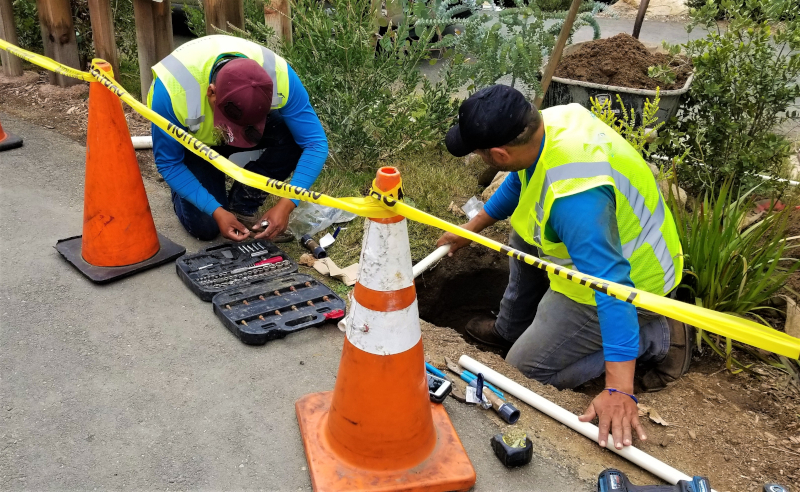Kentucky’s hard water is known around the world for it’s mineral content. The limestone present in the water feeds the bluegrass, and gives that unmistakable flavor to the world’s best bourbons! However, hard water can be a nuisance when it comes to plumbing! First, let’s go over exactly what hard water is.
When water rests in a the ground, it comes into contact with whatever rocks and minerals are present in that area. The water picks up extraordinarily small particles of these minerals. The water is measured in grains of minerals per gallon, with anything 7.0 gpg being considered hard water. Some areas of the country that have the hardest water include Kentucky, Florida, and Texas.
While hard water can provide some benefits for agriculture or flavor, it also presents a number of challenges for daily use and in plumbing. For example, it is harder to get soaps and shampoos to lather in hard water. If it dries on a surface, it can leave a noticeable mineral reside left behind, such as spots on your dishes. Over time, these same minerals build up in pipes, drains, and shower heads. Buildup in washing machines, hot water heaters, and even toilets can reduce the life span of those devices.
Luckily, there are few different ways we can deal with these problems. The simplest solution is probably something you already have around your house – vinegar! That’s right, plain white vinegar has the acidity needed to break up these mineral deposits. For example, shower heads often collect mineral buildup, but with vinegar it is easy to remove. Simply use a rubber band to secure a zip lock bag around the shower head, and pour in some vinergar to cover the affected spots. Within a few minutes, the minerals will be loose enough to wipe away. You can also use vinegar in your washing machine to help reduce drying spots, and in your laundry to flush out buildup that occurs in your clothes.
However, vinegar can only go so far. Sometimes, build occurs in your pipes as water enters your appliances. In very hard water areas, this can damage connections and reduce flow. If you’re stricken with these problems, the best solution is to purchase a water softener. These devices use a special salt to break up and neutralize the minerals in the water before they can build up in your appliance. While it may be an upfront cost, the lifespan of your pipes will be lengthened and may help prevent larger repairs in the future!

